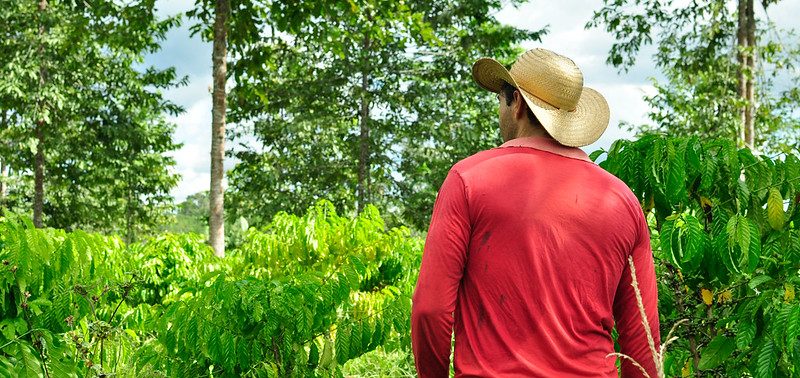Brazil has more trees than any country except Russia—but when our huge forests make the news, it is usually because of deforestation.
My nation and its Amazon region are so incomprehensibly big that it is almost impossible to know what is going on there, even as the government tries to generate data. Despite this, I welcome the recent news that deforestation in my country recently hit a five-year low.
What is missing from many popular accounts is how much farmers like me are doing to defend Brazil’s forests and promote biodiversity. The truth is that while many assume that agriculture is a part of the problem, farmers are in fact a key to the solution.
Our farm is a multi-generation family business with a 48-year history in the southern state of Mato Grosso, which borders Paraguay. The region is a transition zone that mixes woodlands with a tropical savannah known as the Cerrado. We are blessed with rich soil as well as amazing plant and animal diversity.
We grow corn and soybeans and raise livestock on thousands of hectares. We are also a transportation company with about 300 trucks and sales of diesel gas.
Every single day, we strive to sustainably produce as much food as possible from the fields we work. Because of modern technologies like genetic engineering and precise mechanisation, we are enjoying the highest yields in the history of agriculture.
This is a global success story: Never have farmers been more productive than they are today. We are growing more food on less land than ever before. Critical to the cause of conservation is to continue improving this.
On our farm, we have adopted no-till, which keeps the soil fertile, protects it from erosion and enhances biodiversity. We use crop-protection tools to defeat weeds, pests and disease. We also have a strategy of crop-pasture integration that allows our crops and cattle to work together and get the most out of the land through sustainable intensification.
Now we are starting to establish a reforestation program that will permit us to issue carbon credits to the market.
Each of these choices makes Brazil’s forests safer.
For as much as we do to get the most out of our land while we protect the environment, Brazil could do better. We still lack some of the basic infrastructure that farmers elsewhere take for granted. More paved roads would reduce our fuel consumption and the emissions associated with it. An expansion of 4G networks would encourage the use of the best and latest technologies in our fields.
This is beyond the ability of one farm to accomplish. It takes a collective effort, led by a government committed to action.
A different kind of inaction also threatens Brazil’s forests: the bureaucratic inefficiencies. Getting approvals for preservation zones and legal reserves can take a decade.
The first step in the complicated ordeal is when a farmer submits an application. Then comes a study based on satellite imagery and site visits, followed by environmental assessments that can order preservations on as little as 35 per cent of the land or as much as 80 per cent of it. Next, there is a long period of negotiations that involve questions of deforestation, reforestation and compensation.
This is done mostly by paperwork. The agency in charge of these matters still does not have an adequate computer system. The resulting chaos creates many opportunities for illegal operations to break the law—and contributes to deforestation.
My farm obeys the law. We play by the rules, even when we find them challenging. Brazil is home to about one-eighth of the world’s forests. I am one of many farmers who would like to keep it this way—and we will if we are treated as partners rather than as enemies.
We are ready to collaborate.
This piece was originally published on Global Farmer Network and has been revised to suit Farming First editorial guidelines. Header image: Icaro Cooke Vieira/CIFOR



